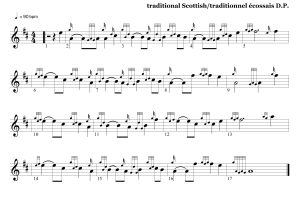© ericdentinger.com
2008-2026
Eric Maclewis - BAGPIPE SOUNDS
Eric Maclewis
- original version in Scots language -
(Robert Burns 1788 & 1796 & trad.)
Should auld acquaintance be forgot
And never brought to mind?
Should auld acquaintance be forgot
And auld lang syne!
For auld lang syne, my dear
For auld lang syne
We'll tak a cup o' kindness yet
For auld lang syne
And surely ye'll be your pint stowp! (*)
And surely I'll be mine!
And we'll tak a cup o'kindness yet
For auld lang syne
(chorus)
We twa hae run about the braes
And pou'd the gowans fine
But we've wander'd mony a weary fit
Sin' auld lang syne
(chorus)
We twa hae paidl'd in the burn
Frae morning sun till dine
But seas between us braid hae roar'd
Sin' auld lang syne
(chorus)
And there's a hand, my trusty fere!
And gie's a hand o' thine!
And we'll tak a right gude-willie waught
For auld lang syne
(chorus)
(*) pint stowp = tankard
Rod Stewart (Stirling Castle - 2012)
Auld Lang Syne
- adapted to modern English -
(Robert Burns & trad.)
Should old acquaintance be forgot
And never brought to mind?
Should old acquaintance be forgot
And the days of auld lang syne
For auld lang syne, my dear
For auld lang syne
We'll drink a cup of kindness yet
For the sake of auld lang syne
And surely you will buy your cup
And surely I'll buy mine
We'll take a cup of kindness yet
For the sake of auld lang syne
(chorus)
We two have run about the slopes
And pulled the daisies fine
But we've wandered many a weary foot
Since the days of auld lang syne
(chorus)
We two have paddled in the stream
From morning sun till night
But seas between us broad have roared
Since the days of auld lang syne
(chorus)
And there's a hand, my trusty friend
And give us a hand of yours
And we will take a goodwill draught
For the sake of auld lang syne
(chorus)
Few people in France know that behind the famous “Ce n'est qu'un Au Revoir” hides a very old Scottish tune...
We find traces of the air (or at least the general purpose of the song) in a lament present in a manuscript of the 16th century (Bannatyne Manuscript).
The famous first verse "Should old acquaintance be forgot" and the expression "Auld Lang Syne" (which can be translated as "long ago" or "once upon a time") seem to appear for the first time in a 17th century poem published in 1711 (Watson's Choice Collection of Scots Poems).
The current melody seems to be directly related to two arias of strathspey used in Scottish Country Dance: The Miller's Wedding (Bremner's Scots Reels - 1759) or The Miller's Daughter (Cumming's Strathspeys - McGlashan's Strathspey Reels - 1780).
Other tunes seem to be modelled on the structure of this melody that we can therefore also find more or less with Sir Alexander Don's Strathspey, Coming Thro' The Rye, etc...
The lyrics, constituting an ode to friendship, are attributed to Robert Burns since their publication in 1796.
However, by the Scottish poet's own admission, the bulk of the text is much earlier, Burns having completed it with two verses.
The French transposition (1920), now formalised by “Ce n'est qu'un au revoir”, is due to Jacques Sevin, a key player in scouting in France.
Auld Lang Syne established himself in the Anglo-Saxon world as a New Year's melody under the impetus of the orchestra of Canadian Guy Lombardo from 1929.
Like Amazing Grace, its popularity is international, especially in the Far East.
As a feedback effect, the air has of course returned in force in Scotland in the Hogmanay festivities as well as to close several types of traditional events (Burns nights, ceilidhs, etc...) or other ceremonies.
Red Hot Chilli Pipers
GAELIC AIR
AULD LANG SYNE
On the album (2nd tune)
- score by Eric Maclewis with CelticPipes









